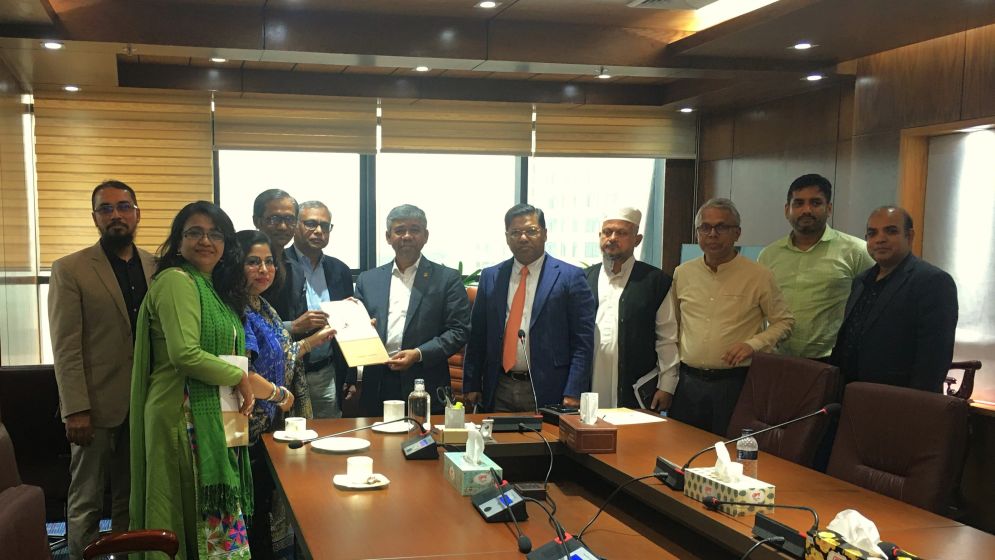NBR urged to strengthen tobacco control laws and increase tobacco taxes

Photo Courtesy: Progga
A delegation from the research and advocacy organization PROGGA (Knowledge for Progress) and the Anti-Tobacco Media Alliance (ATMA) called on the National Board of Revenue (NBR) to play a key role in strengthening tobacco control laws and implementing effective tobacco tax policies.
The delegation made their case during a meeting with NBR Chairman Md. Abdur Rahman Khan FCMA at the NBR office on Tuesday, December 10, 2024.
The NBR Chairman expressed appreciation for the advocacy of PROGGA and ATMA, acknowledging that while most stakeholders typically push for tax reductions, the two organizations are advocating for tax increases.
“I want to thank PROGGA and ATMA in particular for their stance,” said Khan. “All of your reform proposals are reasonable, and we will take them into consideration while preparing the national budget. I will also work towards facilitating the amendment of the tobacco control law.”
The meeting highlighted that raising tobacco product prices through tax increases is a widely accepted global strategy to reduce tobacco consumption.
Despite this, Bangladesh's tobacco products remain relatively affordable due to a flawed taxation system, which encourages tobacco use, especially among the youth and low-income populations.
Tobacco use is responsible for approximately 161,000 deaths annually in Bangladesh, and the increasing number of tobacco-related deaths is contributing to rising healthcare costs for the government.
The delegation presented several proposals aimed at improving public health and increasing government revenue.
These include adjusting cigarette prices to reflect inflation and increases in per capita income, replacing the current multi-tiered ad valorem tax system with a uniform specific or mixed (specific and ad valorem) taxation structure, and raising the supplementary duty on lower-tier cigarettes to at least 70 percent.
Speakers also discussed the Health Ministry's efforts to amend and strengthen the tobacco control law.
Citing NBR data, they argued that enhancing tobacco control measures does not result in a loss of revenue. For instance, after the first tobacco control law was enacted in 2005, cigarette sector revenue grew by 17.97% in FY 2005-06 and 37.52% in FY 2006-07.
Similarly, after the 2013 amendment to the tobacco control law, cigarette sector revenue surged by 25.51% in FY 2013-14 and 46.52% in FY 2014-15.
The delegation emphasized that NBR should not be swayed by the tobacco industry's misleading tactics and should fully support the passage of the draft amendment to the tobacco control law.
The meeting was attended by a number of experts and advocates, including Professor Dr. Sohel Reza Chowdhury, Head of the Department of Epidemiology and Research at the National Heart Foundation Hospital and Research Institute; Mortuza Haider Liton, ATMA convener; Nadira Kiron and Mizan Chowdhury, co-conveners of ATMA; ABM Zubair, Executive Director of PROGGA; and Md. Hasan Shahriar, Head of Programs at PROGGA.
—

